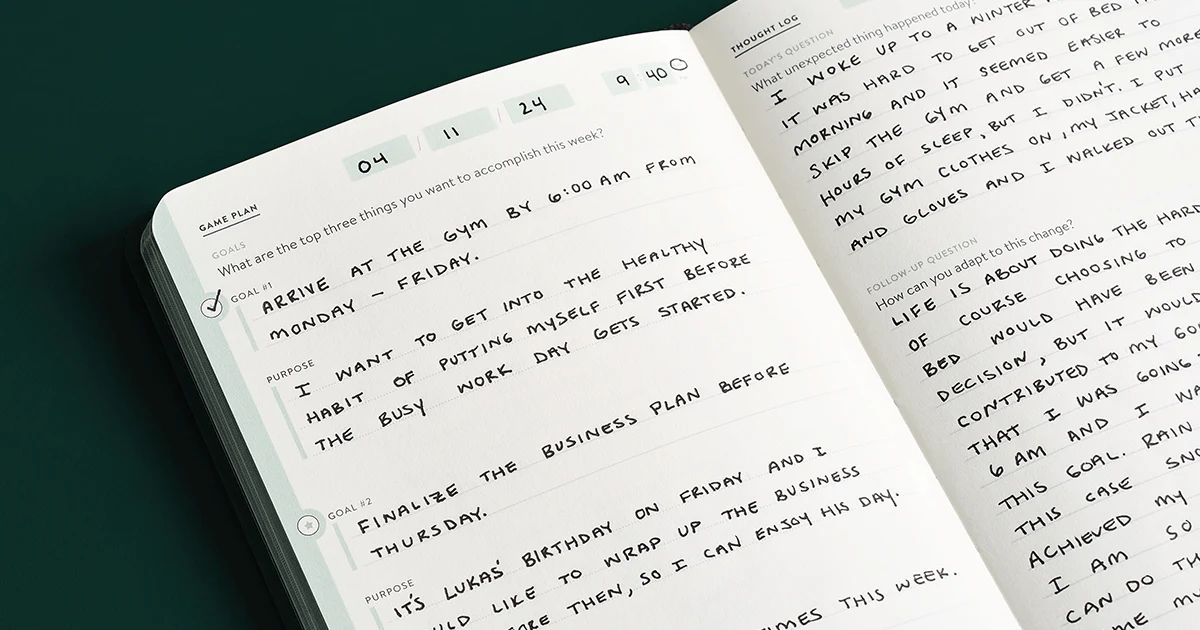In our fast-paced, digitally driven world, finding effective ways to manage stress, anxiety, and emotional challenges has become more crucial than ever. While therapy and medication remain important treatment options, there’s a simple, accessible tool that has been quietly transforming mental health outcomes for centuries: journaling.
This ancient practice of putting pen to paper has evolved from teenage diary entries to a scientifically validated intervention that mental health professionals increasingly recommend as a powerful complement to traditional treatments.
The therapeutic benefits of journaling extend far beyond mere self-expression. Research consistently demonstrates that regular writing about thoughts, feelings, and experiences can significantly reduce symptoms of depression, anxiety, and post-traumatic stress disorder while enhancing emotional well-being. Unlike many mental health interventions that require professional guidance or expensive resources, journaling offers an immediately accessible, cost-effective approach that individuals can implement independently.
What makes journaling particularly compelling is its versatility and adaptability. Whether you’re dealing with everyday stress, processing traumatic experiences, working through relationship challenges, or simply seeking greater self-awareness, journaling can be tailored to meet your specific needs. The practice doesn’t require special skills, expensive equipment, or scheduled appointments – just a willingness to explore your inner world through written words.
As we dig deeper into the science behind journaling’s mental health benefits, you’ll discover how this simple practice can become a cornerstone of your emotional wellness routine, offering both immediate relief and long-term psychological benefits.
The Science Behind Journaling and Mental Health

The therapeutic power of journaling isn’t just anecdotal – it’s backed by robust scientific research that reveals measurable improvements in mental health outcomes. A comprehensive meta-analysis examining 31 clinical studies found that journaling interventions resulted in an average statistically significant 5% reduction in patient scores on mental health measures compared to control groups.
The neurological mechanisms underlying the benefits of journaling are particularly fascinating. Brain imaging studies reveal that individuals who write about their feelings demonstrate enhanced emotional regulation compared to those who write about neutral experiences.
When we translate chaotic thoughts and emotions into structured written language, our brains rewire themselves to process experiences more effectively. This transformation occurs because writing engages multiple cognitive processes simultaneously – memory retrieval, emotional processing, and linguistic organization – creating new neural pathways that support better mental health.
Research also indicates that the timing and approach of journaling significantly influence its effectiveness. Studies show that writing about traumatic events immediately after they occur may worsen symptoms, while delayed processing through journaling proves more beneficial. This finding underscores the importance of understanding when and how to implement journaling practices for optimal mental health outcomes.
Specific Mental Health Benefits of Regular Journaling

Anxiety Reduction and Stress Management
Journaling demonstrates particularly strong efficacy in managing anxiety disorders, with research showing a 9% reduction in anxiety symptoms among regular practitioners. The practice works by providing a structured outlet for worries and fears, preventing the endless mental loops that characterize anxiety disorders. When anxious thoughts are externalized onto paper, they become more manageable and less overwhelming.
Writing about feelings has been directly linked to decreased mental distress, with studies showing that individuals who journaled for just 15 minutes three days a week over 12 weeks experienced increased feelings of well-being and fewer depressive symptoms. The anxiety-reducing effects of journaling stem from its ability to help individuals identify triggers, track symptoms, and develop coping strategies through increased self-awareness.
Depression Management and Mood Regulation
While journaling shows more modest effects on depression compared to anxiety, with approximately 2% improvement in symptom scales, the practice still offers valuable support for individuals managing depressive disorders. Journaling helps combat depression by encouraging positive self-talk, identifying negative thought patterns, and providing a sense of accomplishment through regular practice.
The mood-regulating benefits of journaling extend beyond symptom reduction to include enhanced emotional processing and increased self-understanding. By regularly documenting thoughts and feelings, individuals develop greater awareness of their emotional patterns, enabling them to recognize early warning signs of depressive episodes and implement preventive strategies.
PTSD and Trauma Processing
Post-traumatic stress disorder responds particularly well to journaling interventions, with research demonstrating a 6% reduction in PTSD symptoms. This finding is especially significant given the moderate heterogeneity in PTSD studies, which allows for greater confidence in the results. Journaling provides trauma survivors with a safe space to process difficult experiences at their own pace, without the pressure of verbal communication that traditional therapy might require.
The trauma-processing benefits of journaling work by helping individuals break away from the cyclical thinking patterns that characterize PTSD. Writing about traumatic experiences allows for gradual exposure and processing, enabling survivors to develop new perspectives and integrate their experiences into their broader life narrative.
Physical Health Benefits Connected to Mental Wellness
The mind-body connection becomes particularly evident when examining journaling’s impact on physical health outcomes. Research conducted with 49 adults in New Zealand found that individuals who wrote about their feelings regarding upsetting events healed faster after medical procedures compared to those who wrote about daily activities. This finding suggests that emotional processing through journaling directly influences the body’s healing mechanisms.
College students who engaged in expressive writing about stressful events demonstrated stronger immune function, experiencing fewer illnesses compared to peers who wrote about neutral topics. Women with breast cancer who wrote positively or expressively about their disease experience reported fewer physical symptoms and required fewer cancer-related medical appointments.
The stress-reduction effects of journaling contribute significantly to these physical health improvements. Chronic stress suppresses immune function, delays wound healing, and exacerbates numerous health conditions. By providing an effective stress management tool, journaling helps restore the body’s natural healing processes and supports physical wellness.
Practical Journaling Techniques for Mental Health

Getting Started with Therapeutic Writing
Beginning a journaling practice for mental health doesn’t require special skills or expensive materials – just consistency and openness to self-exploration. Start with short, manageable sessions of 10-15 minutes, focusing on writing continuously without worrying about grammar, spelling, or structure. The goal is emotional expression and processing, not literary perfection.
Choose a consistent time and place for journaling to establish it as a regular habit. Many people find morning journaling helpful for setting daily intentions, while others prefer evening sessions for processing the day’s experiences. Experiment with different approaches to discover what works best for your schedule and emotional needs.
Structured Journaling Approaches
Gratitude Journaling: Focus on documenting positive experiences, accomplishments, and things you’re grateful for. This approach helps shift attention away from negative thought patterns and builds resilience against depression and anxiety.
Stream-of-Consciousness Writing: Allow thoughts and feelings to flow freely onto paper without censoring or organizing them. This technique helps access unconscious emotions and provides insight into underlying mental health patterns.
Problem-Solving Journaling: Use writing to work through specific challenges by documenting the problem, exploring potential solutions, and tracking progress toward resolution.
Emotional Processing Journaling: Focus specifically on difficult emotions or traumatic experiences, allowing for gradual processing and integration of challenging material.
Maximizing Journaling’s Mental Health Impact
To optimize journaling’s mental health benefits, research suggests several key considerations. Interventions lasting longer than 30 days show greater effectiveness than shorter-term practices. This finding emphasizes the importance of viewing journaling as a long-term commitment rather than a quick fix for mental health challenges.
Privacy plays a crucial role in journaling’s effectiveness. Studies indicate that journals should not be collected or analyzed by others, as this knowledge can inhibit honest self-expression. The therapeutic value of journaling lies partly in its private, judgment-free nature, allowing for complete emotional honesty.
Combine journaling with other mental health practices for maximum benefit. Regular meditation, healthy eating, consistent exercise, adequate sleep, and avoiding substance abuse all enhance journaling’s positive effects. View journaling as one component of a comprehensive mental wellness strategy rather than a standalone solution.

